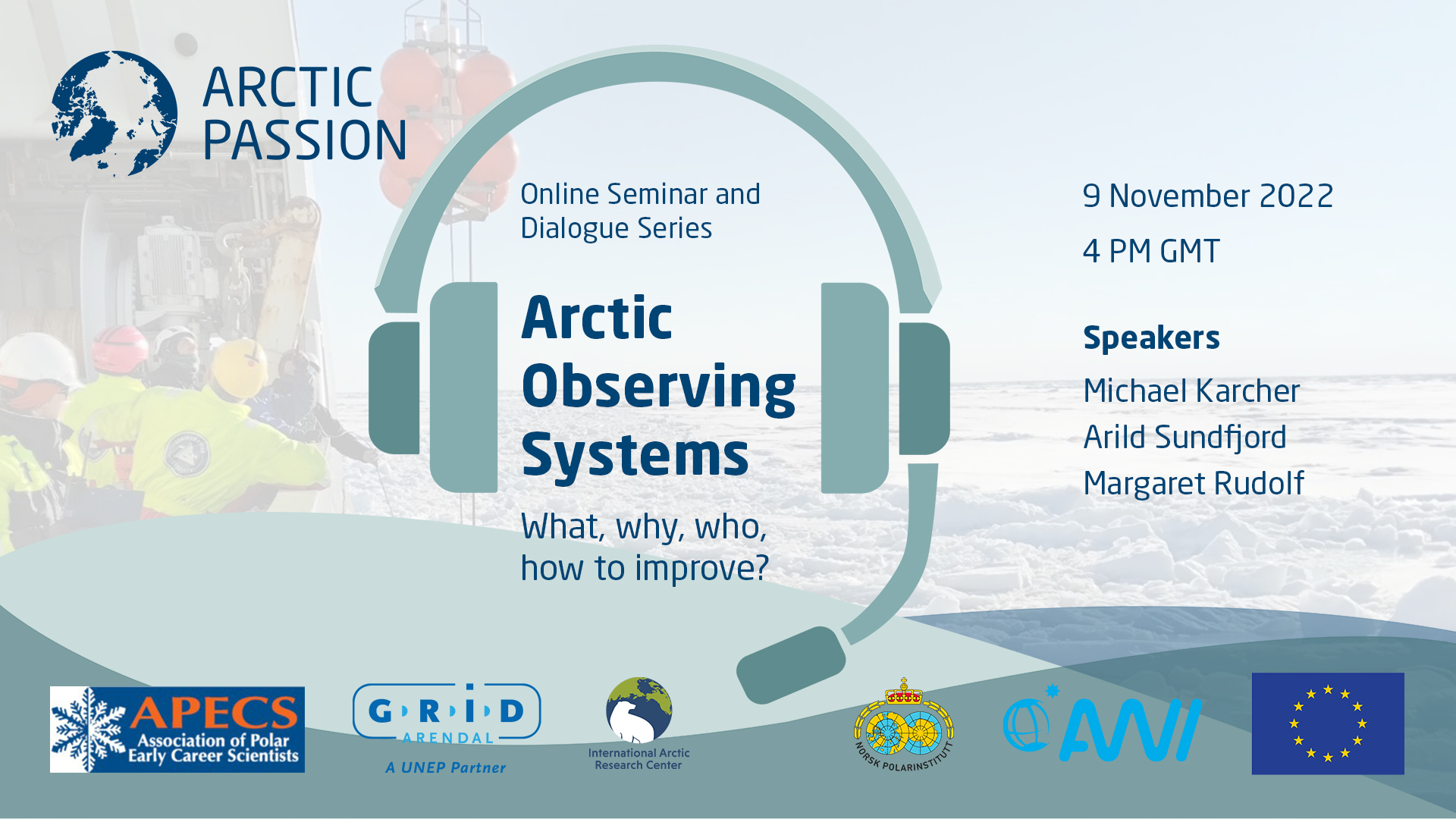Arctic Observing Systems - What, Why, Who And How To Improve
by Lisa Grosfeld | Published: 29-Sep-22 | Last updated: 29-Sep-22 | Tags : observing webinar | category: EVENT
Have you ever wondered what Arctic observing systems actually are? What do they observe and why do we need them? What does the data tell us for our daily lives and how might this be important for your own research? And which role does climate monitoring play in the use of Arctic observing systems?

© Flyer designed by GRID-Arendal /AWI Media , photo by Mats Granskog
This online seminar which is part of our ongoing “Arctic PASSION Online Seminar and Dialogue Series” answers these questions - and many more - and gives you an introduction to Arctic observing systems.
In its first part, you will receive an overview of the general structure of Arctic observing systems and the relevant projects and networks currently working with them. A special focus will be laid on their current status and possible future improvements. To this end, you will also get an insight into the Arctic PASSION project whose mission is the implementation of a coherent and integrated Arctic observing system.
The second part will introduce you to some of the problems researchers encounter when working with Arctic observing systems: The data they produce are scarce, intermittent and rarely cover all necessary variables. It then goes on to present you some of the possible solutions that projects like Arctic PASSION offer. It not only enhances planning and coordination across institutions and national programs but also facilitates applications if you need to work on a research vessel or need to use a drifting sea ice sensor platform for your own research. Hereby, examples of progress made in the first phase of the Arctic PASSION project will be given, along with plans for the coming years.
Last but not least, the third part will focus on the importance and the
role of Indigenous and Local Knowledge. Since Arctic observing systems impact
policy- and decision-making, they also have a direct impact on Arctic
Indigenous Peoples. They therefore have an invested interest in ensuring the
observing systems are sufficient and effective. Through Indigenous Knowledge
Systems and living in the Arctic, Indigenous Peoples are the first to be aware of
changes and have a holistic understanding of how changes will have
ecosystem-wide impacts. This part will thereby demonstrate why equity is
fundamental to the process of SAON ROADS in supporting
Indigenous self-determination with decision-making power, as well as to
supporting Indigenous Knowledges to be ethically part of the Arctic observing
systems.
Speakers:
Michael Karcher (Arctic PASSION coordinator at Alfred Wegener Institute)
Arild Sundfjord (Oceanographer at Norwegian Polar Institute/Arctic
PASSION)
Margaret Rudolf (Graduate Research Assistant at the International Arctic
Research Center/SAON ROADS)
Moderator:
Lisa Grosfeld (Project Manager at the Alfred Wegener Institute/Arctic
PASSION)
There will be time for discussion in between the talks and at the end. The seminar takes place on November 9th at 4 PM GMT via Zoom. Please register in advance via this link: https://us02web.zoom.us/webinar/register/WN_TxvR5S0TQ0KD57u7bujepw.
